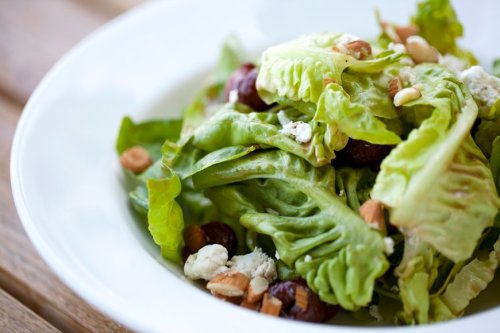Everything you need to know about the E. coli outbreak on romaine lettuce
An E. coli outbreak in bags of chopped romaine lettuce has caused at least 53 illnesses in 16 different states. Here's what to know so you don't get sick.

It’s been a rough week for some of the main staples in your refrigerator. Currently, the United States is experiencing its biggest egg recall in nearly a decade due to salmonella contamination, and now romaine lettuce is taking a hit too because of a serious E. coli outbreak.
So far, 16 states have seen at least 53 cases of illness due to the bacteria in bags of chopped romaine lettuce. The affected states are Alaska, Arizona, California, Connecticut, Idaho, Illinois, Louisiana, Michigan, Missouri, Montana, New Jersey, New York, Ohio, Pennsylvania, Virginia, and Washington.
Of the people affected, 31 have been hospitalized, and five have developed a type of kidney failure, according to the Centers for Disease Control and Prevention (CDC). The rate of hospitalizations is higher than usual for E. coli—it’s typically 30 percent but has reached 67 percent for this episode, according to The New York Times—but health officials aren’t sure why.
“The prudent thing to do at this point is to avoid all romaine.” —Jean Halloran, director of food policy initiatives for Consumers Union
Health experts are urging people to avoid all romaine lettuce from Yuma, Arizona—where they think it originated—whether it’s organic, chopped, or in a salad mix. Can’t decipher where your greens originated? It’s safest avoid the stuff completely.
“Are you really supposed to say to the waiter who serves you Caesar salad, ‘Can you tell me where the romaine lettuce was obtained?'” Jean Halloran, director of food policy initiatives for Consumers Union, notes. “It’s completely unreasonable and unrealistic to think consumers may be able to sort out whether the romaine they eat at a restaurant or buy at a store comes from Yuma, Arizona, or someplace else. The prudent thing to do at this point is to avoid all romaine.”
So, be extra vigilant about banning romaine from your diet until the CDC says it’s safe again. While that might be tough for leafy-greens lovers, don’t worry—kale and spinach still have your back.
This soon-to-come smartphone app could help you identify food bacteria. Or, learn about the one food to avoid on your wedding day.
Sign Up for Our Daily Newsletter
Get all the latest in wellness, trends, food, fitness, beauty, and more delivered right to your inbox.
Got it, you've been added to our email list.










